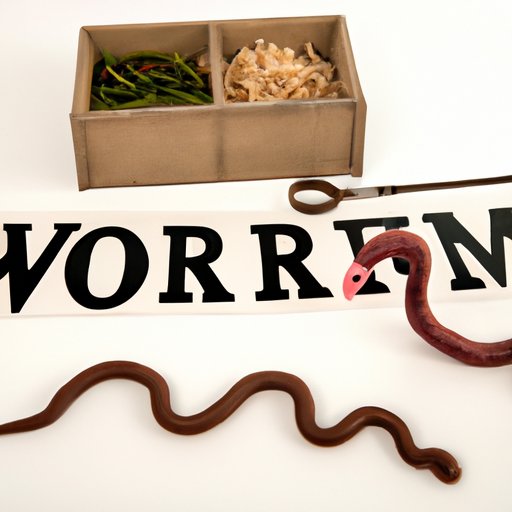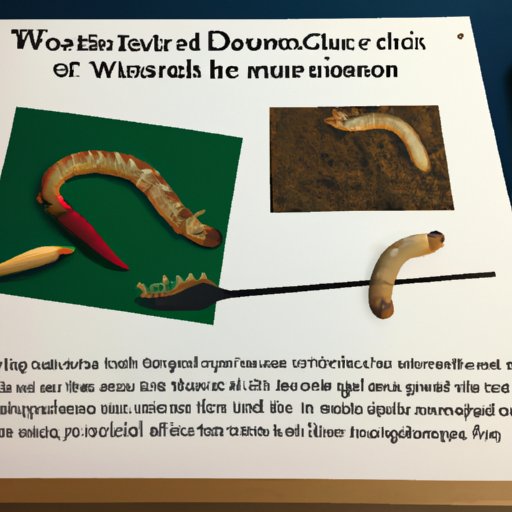Introduction
The Diet of Worms was a 16th century event that had a profound impact on the development of Christianity and the Protestant Reformation. The term “Diet of Worms” is derived from the city of Worms, Germany, where the historic event took place. It was a meeting of princes, religious leaders, and other important figures of the Roman Catholic Church, convened by Emperor Charles V to discuss the teachings of Martin Luther. In this article, we will explore the origins and significance of the Diet of Worms, as well as its lasting legacy.

A Historical Look at the Diet of Worms
Origins of the Diet of Worms
The Diet of Worms was a pivotal moment in the history of the Protestant Reformation. It began with the German monk and theologian Martin Luther, who was an outspoken critic of the Catholic Church. In 1517, he wrote his Ninety-Five Theses, which attacked the Church’s practice of indulgences and questioned the authority of the Pope. His writings quickly spread throughout Europe, sparking a reform movement that would eventually lead to the creation of Protestantism.
In 1521, Emperor Charles V issued a mandate ordering Luther to appear before a gathering of religious and political leaders in Worms to answer for charges of heresy. Despite warnings of potential danger, Luther agreed to attend the Diet, famously declaring: “Here I stand; I can do no other.”
Events Surrounding the Diet of Worms
At the Diet of Worms, Luther was presented with a list of his writings and was asked to recant them. He refused, arguing that his conscience would not allow him to do so. He famously declared: “Unless I am convinced by Scripture and plain reason—I do not accept the authority of popes and councils, for they have contradicted each other—my conscience is captive to the Word of God. I cannot and will not recant anything, for to go against conscience is neither right nor safe.”
The assembled princes and religious leaders were furious with Luther’s response, and the emperor declared him an outlaw. Although Luther was placed under the protection of Frederick the Wise, Elector of Saxony, he was still vulnerable to capture and punishment.

Examining the Significance of the Diet of Worms
Impact of the Diet on History
The Diet of Worms had far-reaching consequences for the history of Christianity. Luther’s refusal to recant his writings effectively declared a break between the Catholic Church and the emerging Protestant faith. The Diet of Worms also set in motion a series of events that would lead to the formation of the Lutheran Church and the further spread of Protestantism throughout Europe.
Legacy of the Diet of Worms
In the centuries since the Diet of Worms, Luther’s actions have come to be seen as a heroic stand for religious freedom and individual conscience. The Diet of Worms has become a symbol of the courage of one man to stand up to powerful institutions, and it has been celebrated by Protestants around the world.
Understanding the Causes Behind the Diet of Worms
Background Factors Contributing to the Diet of Worms
The Diet of Worms was the result of a perfect storm of political and religious forces. Luther’s writings had struck a nerve among many who were dissatisfied with the Catholic Church’s practices and doctrines, and his ideas had spread quickly throughout Europe. At the same time, Emperor Charles V was facing increasing pressure from the Pope and the Catholic Church to take action against Luther and his followers.
Political Motivations for the Diet of Worms
The Diet of Worms was also driven by political considerations. Charles V was keen to maintain the unity of the Holy Roman Empire, and the threat posed by Luther and his supporters was seen as a direct challenge to the emperor’s authority. By convening the Diet of Worms, Charles V hoped to demonstrate his power and authority and to quash the rising tide of dissent.

Exploring the Impact of the Diet of Worms on History
Short-Term Effects of the Diet of Worms
The immediate effect of the Diet of Worms was to further inflame tensions between Catholics and Protestants. While Luther and his supporters were emboldened by his courageous stand, the Catholic Church was determined to root out the spread of heresy. This led to increased persecution of Protestants and sparked a wave of religious violence that would last for decades.
Long-Term Effects of the Diet of Worms
In the long run, the Diet of Worms had a major impact on the course of European history. The Protestant Reformation continued to spread, leading to the emergence of new denominations and religious sects. The Catholic Church was forced to adapt and modernize its doctrines and practices in order to remain relevant. And, ultimately, the Diet of Worms helped to usher in an era of religious tolerance and freedom of conscience.
Analyzing the Events Surrounding the Diet of Worms
Reactions to the Diet of Worms
The reactions to the Diet of Worms were mixed. Many people were inspired by Luther’s courage and his willingness to stand up to authority. Others were appalled by his defiance and viewed him as a dangerous heretic. But whatever their opinion, almost everyone recognized the significance of the event and the potential implications for the future of Christianity.
Responses to the Diet of Worms
The responses to the Diet of Worms varied widely. Some saw it as a sign of the decline of the Catholic Church and the rise of Protestantism. Others saw it as a symbol of the need for religious reform and greater freedom of conscience. Still others viewed it as a sign of a new era of religious tolerance and understanding.
Investigating the Legacy of the Diet of Worms
Lasting Impacts of the Diet of Worms
The legacy of the Diet of Worms continues to this day. It has come to represent the triumph of individual conscience over authority and the inherent human right to choose one’s own religious beliefs. It is also remembered as a key moment in the development of Protestantism and the spread of religious freedom.
Contemporary Views of the Diet of Worms
Today, the Diet of Worms is seen as a milestone in the history of Christianity. It remains an inspiring example of courage and conviction, and a reminder of the power of individual conscience. As historian Richard Rex notes, “Luther’s stand at the Diet of Worms was a defining moment in the history of the Christian church and of Western civilization itself.”
Conclusion
The Diet of Worms was a pivotal moment in the history of Christianity and the Protestant Reformation. It was a bold stand for religious freedom and individual conscience, and its legacy continues to this day. The Diet of Worms has come to symbolize the power of one person to stand up to powerful institutions, and it serves as an inspiring example of courage and conviction.
(Note: Is this article not meeting your expectations? Do you have knowledge or insights to share? Unlock new opportunities and expand your reach by joining our authors team. Click Registration to join us and share your expertise with our readers.)
